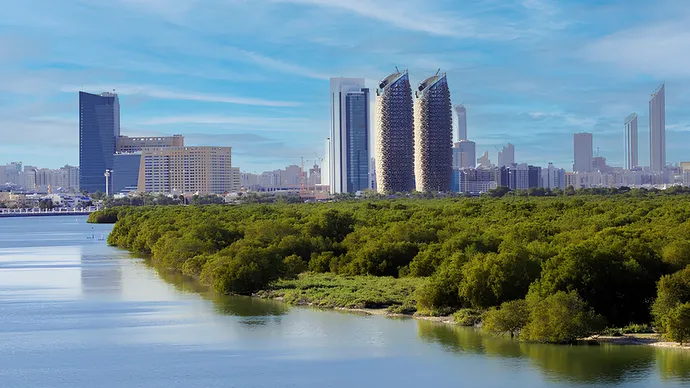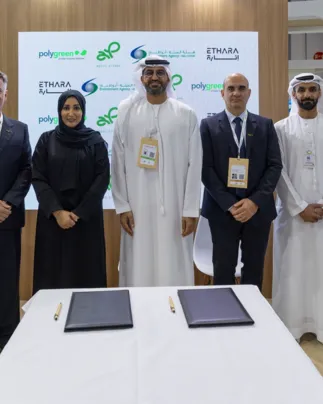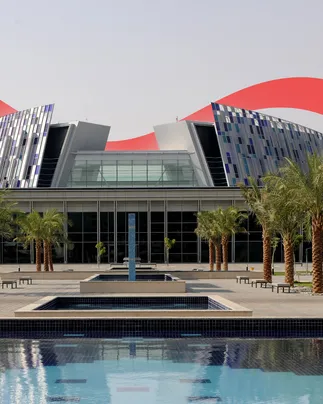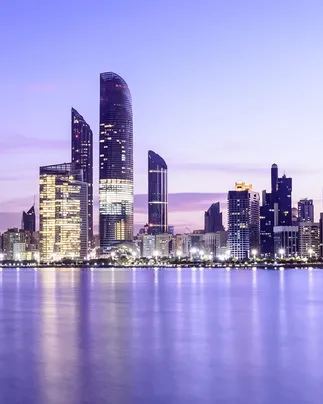The Environment Agency – Abu Dhabi (EAD) has launched the Abu Dhabi Climate Change Adaptation Plan for the Environment Sector (2025–2050) – a comprehensive and science-based roadmap designed to protect the emirate’s natural resources and systems from the increasing and inevitable impacts of climate change.
The plan, the emirate’s first, was created as part of the Abu Dhabi Climate Change Strategy 2023–2027, and is aligned with the UAE National Climate Change Plan 2017-2050 and the UAE Framework for Global Climate Resilience, established at COP28, which provides time-bound targets for adaptation planning across key sectors.
Her Excellency Dr Shaikha Salem Al Dhaheri, Secretary General of EAD, said: “The launch of the Abu Dhabi Climate Change Adaptation Plan for the environment sector marks a defining moment for the environmental future of the emirate. We are moving beyond foresight to decisive actions, preparing for climate realities with an unwavering commitment to safeguarding our natural heritage. This plan is a science-backed, action-oriented roadmap that will enhance the resilience of our natural resources, safeguard biodiversity and thrives to ensure water and food security.
“This achievement reflects our commitment to foreseeing a future based on adaptation to current and future climate impacts. It strengthens our efforts to achieve the UAE’s national climate objectives and Sustainable Development Goals by reducing environmental vulnerabilities and safeguarding ecosystems. This plan firmly places the emirate at the forefront of adaptation planning in the region.”
The Environment Sector Adaptation Plan focuses on three highly vulnerable environmental systems: groundwater, soil, and biodiversity. These are critical to Abu Dhabi’s human health, long-term water security, agricultural productivity, and overall ecosystem health. Through robust risk assessments, the plan identifies a wide array of climate-induced threats and outlines 142 adaptation actions to be implemented by 2050, including 86 high-priority projects identified for implementation over the next five years. These actions span a range of technical, institutional, and nature-based solutions.
Over the long term, the plan supports Abu Dhabi’s strategic ambition to preserve and enhance its natural resources. It contributes to national efforts to increase food self-sufficiency, effect a shift toward more sustainable land and water management systems, and enhance the conservation of biodiversity and ecosystems. These efforts not only mitigate future environmental and economic risks, but also contribute to the emirate’s social and ecological stability.
Sheikha Al Mazrouei, Executive Director of the Integrated Environment Policy and Planning Sector at EAD, said: “This plan sets a new benchmark for environmental resilience in the region. It offers a clear, science-based pathway to safeguard Abu Dhabi’s natural assets from the accelerating impacts of climate change. Designed to be adaptive and forward-looking, it integrates the latest data, evolving climate projections, and policy alignment to ensure our responses remain effective over time. As part of a broader national and emirate-wide strategy, it reinforces our long-term vision to protect ecosystems, sustain natural resources, and secure the well-being of future generations.”
The development of the plan was a collaborative process, led by EAD, and involved more than 40 government, semi-government, academic, and civil society and youth entities. The plan is designed to be dynamic and forward-looking, with built-in mechanisms for periodic review, stakeholder engagement, and integration of new scientific findings and climate projections. Alongside the UAE National Climate Change Plan 2017-2050, it also complements the National Biodiversity Strategy and other international commitments.
The Abu Dhabi Climate Change Adaptation Plan for the Environment Sector (2025–2050) is one of four sectoral plans being rolled out under a broader emirate-wide adaptation strategy. Upcoming plans will address the energy, health, and infrastructure sectors, which together will form a unified framework that ensures the resilience of Abu Dhabi’s critical systems and communities.










